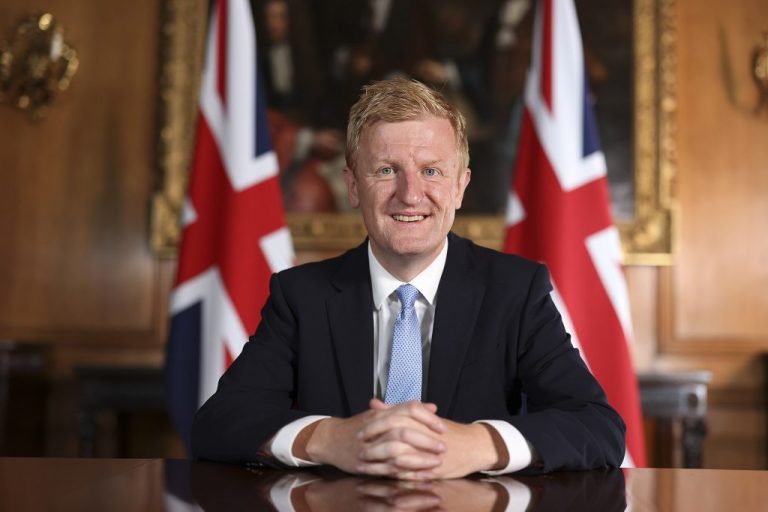AI Trial Promises to Slash Public Service Phone Waiting Times by 50%, Minister Reveals
Phone center waiting times for public services could potentially be halved through the implementation of AI, suggested a minister. Speaking with Sky News, the Secretary for Science, Innovation and Technology, Peter Kyle, described the technology as a “win-win” that could save taxpayer money while enhancing public experience.
“I am committed to promoting this technology within the government,” he emphasized. Long waiting times have consistently plagued individuals seeking services from organizations such as Citizens Advice, HMRC, and the DVLA.
With government discussions revolving around an AI revolution, one trial has demonstrated the technology’s ability to significantly reduce hold times. Citizens Advice teams in Stockport, Oldham, Rochdale, and Trafford successfully reduced the average phone call duration from eight minutes to four during an extensive trial.
More on Artificial Intelligence
The AI assistant, Caddy, was developed internally by the team in Manchester. The positive results garnered interest from government officials, fueling aspirations for its expansion into public services. Citizens Advice operates as a network of charities, and there are hopes that Caddy will be implemented nationwide later this year.
Unlike conventional automated responses, the software empowers workers to answer queries more rapidly and confidently. Stuart Pearson, the head of innovation at the Citizens Advice team in Stockport, Oldham, Rochdale, and Trafford, told Sky News: “Caddy allows our advisors to focus on what truly matters—listening, understanding, and providing personalized support during trying times. This technology enhances our staff’s and volunteers’ efficiency while keeping person-to-person interaction core to our mission.” He added, “For us, Caddy symbolizes our dedication to embracing innovation while retaining the personal touch that has characterized Citizens Advice for over 80 years. Our aim is to responsibly integrate AI to amplify our community impact.”
This new system supersedes traditional methods, which often involved consulting colleagues and manually searching through documents—all of which contributed to lengthy hold times. Now, phone handlers can swiftly query the AI and receive answers based on approved information sources. Senior staff members still verify the responses.
“Callers won’t realize they’re interacting with a person utilizing AI to provide rapid answers, leading to a more enjoyable experience,” Mr. Kyle noted. “They receive information faster and can more promptly address their issues, which allows Citizen’s Advice volunteers to assist a greater number of individuals.”
Read more: Starmer vows to ‘mainline AI’ into UK PM hoping AI will enhance efficiency. Upon taking power last year, Labour faced the challenge of strained public services, with dwindling public confidence. Polling data from Ipsos revealed that three-quarters of Britons felt that public services had declined since 2019. An Institute for Government report concluded that “public services, long under strain, are now collapsing.”
There’s rising concern regarding issues like long phone wait times. MPs have criticized HM Revenue and Customs (HMRC) for allegedly cutting off tens of thousands of calls to push users to online services; the department has labeled these claims “completely unfounded.”
The technology secretary stressed that the purpose of the AI assistant is to make interactions feel “more human,” assuring that callers would remain unaware of the AI’s involvement. Mr. Kyle stated, “HMRC manages 100,000 conversations daily. Imagine if we could reduce conversation times significantly at that scale—people would have more time to handle what they need, leading to better service delivery.”
Beyond enhancing service, AI could also create opportunities for cost savings within the government. Mr. Kyle acknowledged that “headcount, costs, and personnel influence departmental decisions.” However, he aims to elevate service quality through digital transformation. “This is a top priority, and we expect to achieve other productivity gains in the process,” he said. “We are determined to fulfill both objectives.”
Unions are advocating for collaboration with the government to prevent job losses due to technological advancements. Mike Clancy, General Secretary of Prospect, has previously stated that while AI holds “potentially large benefits for the civil service,” successful implementation requires workforce consultation to mitigate risks, rather than being imposed unilaterally.






